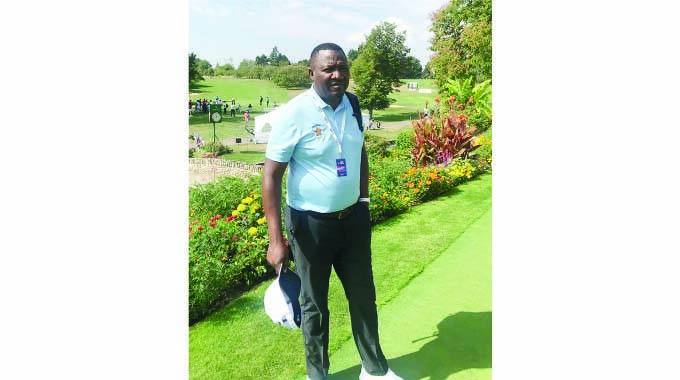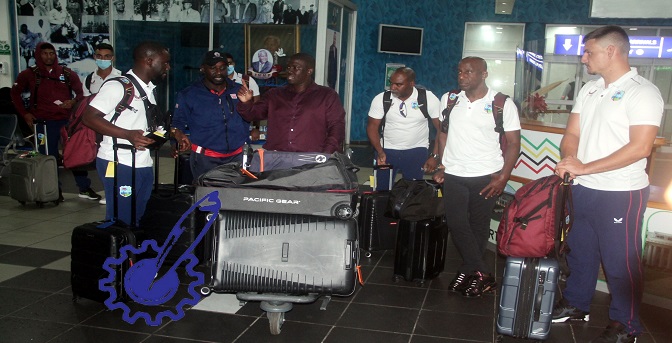Golf: Perfect networking sport

Nqobile Bhebhe, Senior Business Reporter
Globally, top-end business executives are generally expected or assumed to spend time at the golf course cutting deals.
Golf courses are thought to provide a perfect platform for networking to build or increase social capital.
There is talk that golf involves a lot of time not golfing. Those involved in the game, not on a professional level, say during a three-hour game, only a fraction of the outing is spent hitting the ball.
The rest offers abundant opportunities to talk shop.
In such a setting, friendships are forged and also strengthened, so they say.
Chronicle spoke to business executives who frequent the greens to establish reasons for their attraction to the sport.
From the onset, a former railway man who transformed himself to be among the top executives, Mr Obert Sibanda chuckles when asked whether he’s a regular at the golf course.

“I’m expected to be playing golf,” he kicks off the conversation at a local social club.
“The reason why I found myself playing golf is that many people expected me as a business person to be playing golf. Yes, I play the sport on a part-time basis but I think I need to push myself harder. I have the most basic equipment for the sport.”
“Generally, there’s that expectation from society for certain business people to be playing golf. My peers are golfers so I’m supposed to be seen taking part. I don’t recall anybody asking me if I play golf but the question all the time is ‘what’s your handicap?’ which simply means they assume that I play by virtue of being in business,” said Mr Sibanda, an old hand in the construction sector.
He is the past president of the Zimbabwe Building Contractors’ Association and the Zimbabwe National Chamber of Commerce.
Golf roots can be traced to Europe and specifically Scotland with the sport later spreading throughout the United Kingdom.
It began as a white man’s sport and is now popular with everyone who can afford the required equipment.
Mr Japhet Ndebele, who is a year old in golfing, says involvement in the sport does not come cheap. It has a high entry barrier.
“The sport in itself is very expensive. If I may compare it with say rugby, I can walk up to any club and say I want to play rugby and they’ll accept me,” said Mr Ndebele.
“With golf, you have to invest a lot of money in terms of learning how to play the sport. Golf equipment is also expensive but rugby boots are cheap. Also with golf, I have to buy clubs, uniforms, gloves and special types of boots or shoes. It doesn’t end there.”
He continued: “I need to pay a membership fee to a certain club, another expense. That automatically screens people and added to that golf clubs screen prospective members to ascertain your capabilities of paying. You notice that people who qualify tend to be those working at top jobs or top earners. It gives a unique status to being associated with playing golf. The business people would want to have that challenge of proving to meet rigorous entry requirements.”
There’s also an issue of caddies, the person we see carrying those bags packed with clubs, Mr Ndebele adds.
“Plus players need to pay caddies per game so the sport itself is expensive. It screens on its own, hence branded as a white-collar game because of the standards that have to be maintained.”
A golf caddie’s responsibilities have evolved over time from simply carrying clubs.
In professional setups, a modern-day caddie manages a player’s equipment, carries clubs, and ensures the player has enough balls or gloves.

Zimbabwe Golf Association (ZGA) president Martin Chikwanha
That’s not all. They will carry food and drinks, towels, hats or basically everything a player might require during the gruelling 18 holes of golf.
That costs money, hence some corporates sponsor their men for their comfort.
Zimbabwe Golf Association (ZGA) president Martin Chikwanha said golf offers a unique opportunity for executives to cement business relations.
“Golf is a sport that’s favoured as a recreational sport by most executives of major corporations,” he said.
“An average round of golf entails me walking seven to eight kilometres, spending about four to five hours on the course. If I’m taking that much time playing with another executive, it becomes an ideal place to, among other things, speak about business.
“After playing, we go to the clubhouse, the 19th hole, for drinks and occasionally the business conversation continues,” said Mr Chikwanha.
He said not many sports offer such an opportunity to have business conversations adding that golf is anchored around certain principles that describe the serious and genuine business person one is.
“The principles revolve around integrity, honesty, and being upright. It’s a conducive environment where trust can be built. When you initiate a business idea on the course, nine out of 10 times that idea will be carried through.”
Commenting on membership fees, he said there are about 38 clubs around the country and they have different fee structures depending on the nature of the club.
The fee structure ranges from US$100 depending on the needs of the club.
The upkeep of clubs depends on memberships. The course needs to be looked after, and it is the responsibility of members.
“Most of the clubs are not owned by members but some are owned by members. For instance, the Bulawayo Country Club is owned by its members and they have title deeds. Some clubs have a 99-year lease from local authorities and among other requirements for a place to have city status is for it to have an 18-hole golf course. So highly focused corporations that seek to enhance their visibility and reach should consider sending out their top men to the greens in 2023.”









Comments